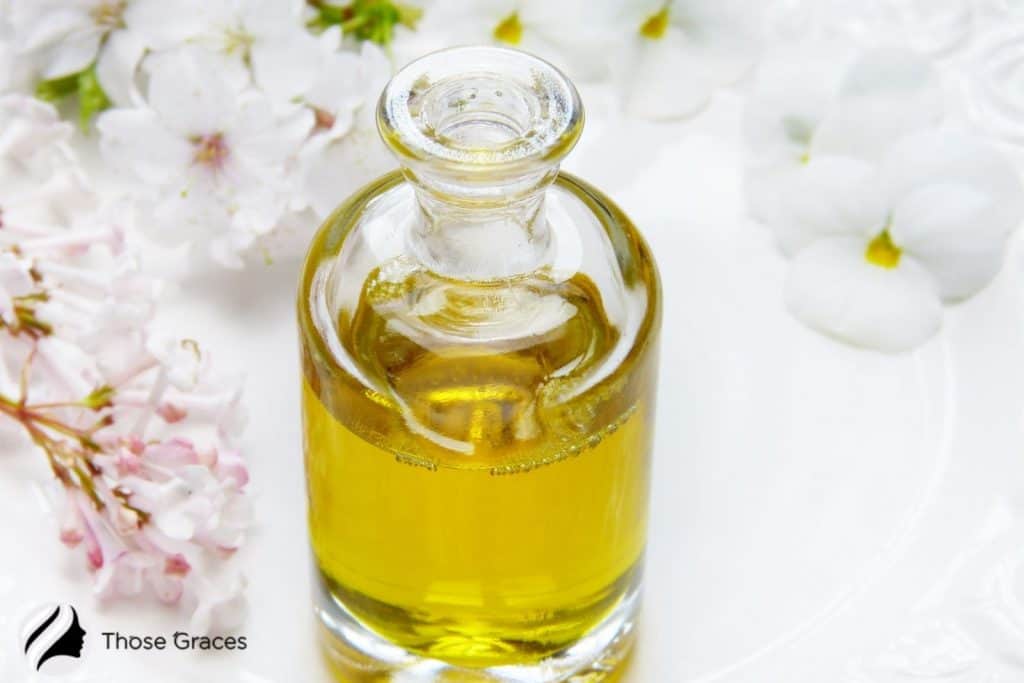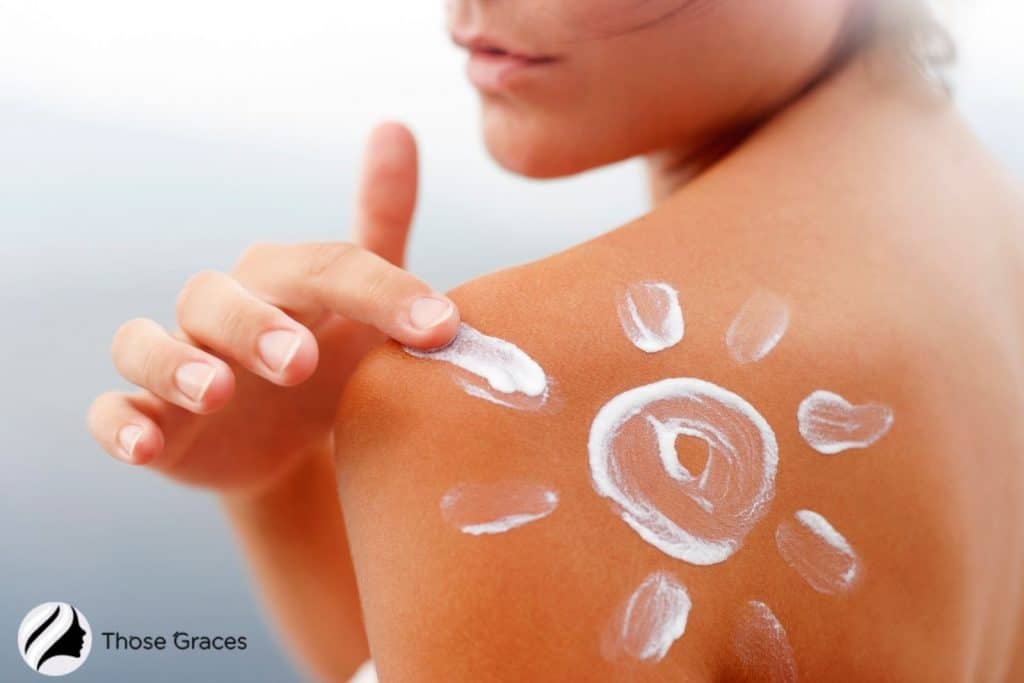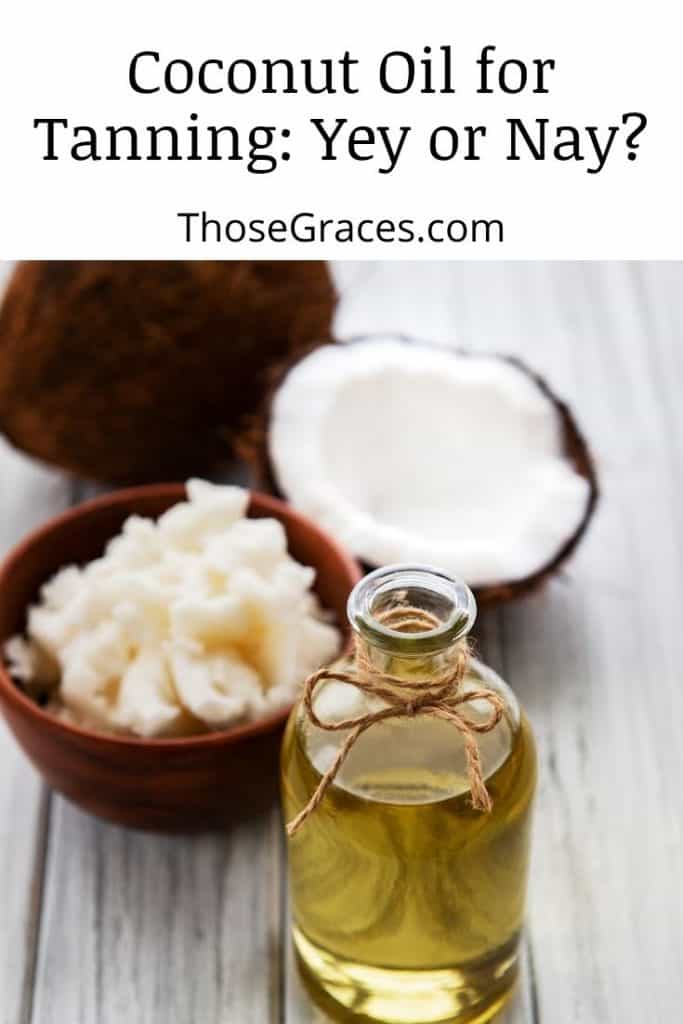Are you wondering if you can use coconut oil for tanning?
Will it work?
Find out the answer by reading this guide and how it compares to other tanning lotions!
We have a lot to discuss, so let’s jump right in!
Don’t forget to check our guide: best at home spray tan machine 2021
Complete Guide to Using Coconut Oil for Tanning
Since the era of natural hair and skincare routines started, it seems like coconut in one form or another shows up in all DIYs.
Like, how do I make natural hair conditioner? Use coconut.
How about a natural lip balm? Use coconut.
You get where I’m going with this. And now that we’ve been doing a tanning series for a while, I thought it was time to answer this question: can you use coconut oil to tan.
And the short answer is YES; you can tan using coconut oil. But trust me, you don’t want to stop here. There is a lot you need because just because you can doesn’t mean you should.
So, let’s explore more.
How Long Does it Take to Get a Tan With Coconut oil?
It takes 15-20 minutes to get a tan using this oil, depending on your skin type.
That said, you shouldn’t expose your skin when tanning with ANY oil for more than 20 minutes.
If you have sensitive skin, ensure you wear protective clothing to avoid sunburns.

Join me in this video as we explore the top UV lamps for safe, effective, and sun-kissed home tanning:
Coconut Oil Vs. Other Types of Tanning Oil
This is a tough battle, but I got you. Using tanning oil definitely is the smarter option when tanning both indoors and outdoors. You can even make your own. Check this DIY Tanning Oil tutorial.
But as usual, I’ll give you a chance to decide by laying out the two constants’ facts.
Below is a comparison table of the two options.
| Coconut Oil | Tanning Oil |
| It has a low SPF and can’t be used with SPF (more on this later). | Usually have an SPF of at least 30 and can be used with SPF. |
| It helps you tan faster and get a darker tan within a few minutes. | Tanning oils also give you a quick tan, but it’s a bit slower compared to when you’re using coconut oil because of the difference in SPF strength. |
| It increases the absorption of vitamin D in your skin. | You can still get sunburns when using tanning oil but the chances are lower. |
| You’re likely to get sunburns when using coconut oil because of its low SPF. | Many tanning lotions can be used for both outdoor and indoor tanning purposes. |
| Can only be used for outside tanning. | Tanning lotions are a bit costly. |
| Cheaper. | Although there are a few tanning oils made from natural ingredients, most of them contain chemicals. |
| No chemicals. |
Does Coconut Oil Make You Darker?
Whether or not coconut oil makes you darker is one of the common questions regarding coconut oil.
I came across the question when browsing through Quora and again on a firstcry parenting forum.
So, does coconut make you darker? Yes and No. Here is the explanation.
When you apply this oil and step out to the sun, your skin will definitely become darker. This is because the coconut hardly blocks UV rays with its SPF of 4-5, so technically, you get a tan, hence the darker skin.
But that doesn’t mean you can’t enjoy the benefits of coconut oil without getting darker; there are other options. For example, you can apply it when you’re indoors. I love to do it before bed.
READ MORE: Best Tanning Oil for Outside
Does Coconut Oil Help Tan Faster?

Yes, coconut makes you tan faster compared to when you’re using tanning oils. Here is why.
Boosts Melanin Production
For you to fully understand the concept, I’ll have to tap a little into the science behind skin tanning.
We will start with the basics. So, our skin has different layers. The upper one has melanocytes, and it’s responsible for melanin production.
Melanin is a form of defense strategy for our skin. When your skin is exposed to UV rays from the sun, the melanocytes produce melanin to protect the skin cells.
When your cells get the melanin pigment, it piles it up on top of the cell’s nucleus. As the pigment piles up, your skin becomes darker (or tanner).
The more excess UV rays are exposed to your skin, the more it produces melanin and the darker you get. That’s why the longer you stay under the sun, the tanner you become.
So, what’s that got to do with coconut oil and tanning? Everything. As we mentioned earlier, tanning oils have a high SPF.
This means melanin production is somewhat regulated, so it takes more time to tan. But since coconut oil has a low SPF, melanin production is fast and high.
Remember, this is the biggest pro, but it’s also the greatest weakness of coconut oil as a tanning oil. Overexposure of your skin to UV rays for too long can be tragic.
Can You Put Coconut Oil Over Sunscreen?
I said that the major caveat of using coconut oil as a tanning lotion is its low SPF. Right?
So, covering the oil with sunscreen pretty much covers the issue. Right? I wish it were that easy.
Unfortunately, you cannot put coconut oil over sunscreen. It will be very irritating, and you’ll hardly last for your tanning session. It’s very uncomfortable.

But there are a few things you can do if you really have to use this oil for tanning. Here are some ideas:
- Apply a generous amount of virgin coconut oil before your tan. In this case, the more, the merrier. This will ensure your skin is well-nourished and hydrated, which is very important in the tanning process.
- Keep reapplying. I know with the tanning oils, you don’t have to keep adding more. But when you’re using coconut as a tanning lotion, keep in mind that it won’t protect you from long exposure to UV rays. Therefore, it’s critical to keep reapplying the oil to keep your skin hydrated.
- Apply more after your tanning session. By the end of your tanning, you may realize that you still got some sunburn. Coconut oil will help soothe and moisturize the irritated parts of your skin and prevent any bacterial infection.
- Wear protective clothing. This may include sunglasses, a hat, and a bikini to protect the sensitive parts of your body.
Check: Best Tanning Lotion for Tattoos
Conclusion
Does coconut oil help make you tan? Yes, in fact, it gives a golden tanner within a few minutes.
Unfortunately, with its low SPF, your skin is exposed to too many UV rays.
In the short term, you may only have to deal with sunburns. But if done frequently, you may end up with serious long-term effects such as skin cancer.
So, are tanning lotions 100% safe? Absolutely not. But they reduce the risk significantly.

What’s your opinion on using coconut oil for tanning? Share with us below!


